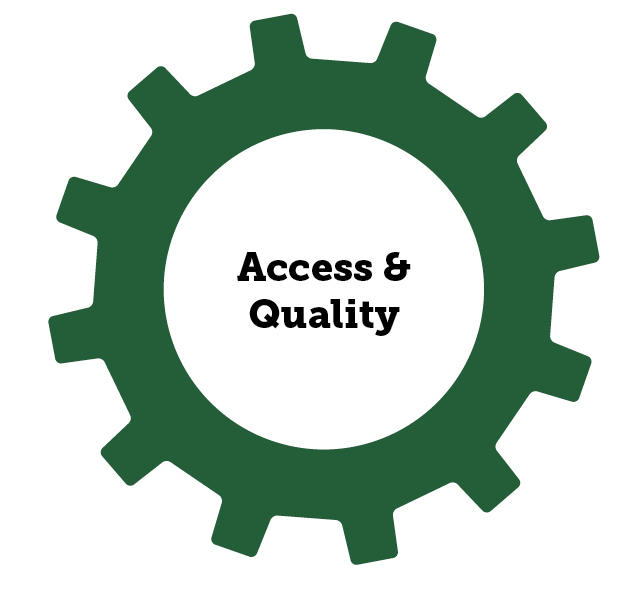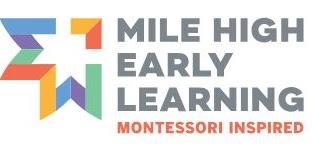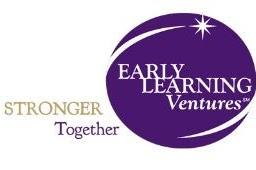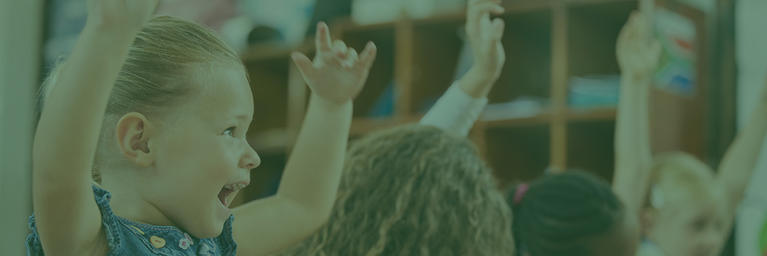Early Head Start
The Need
Early Head Start (EHS) is the only federal program focused on prenatal to age three early development and learning for families from income-eligible households, with a proven model that:
- Prioritizes enrollment of children living in poverty, in foster care, experiencing homelessness and with special needs
- Provides families with comprehensive child development services and family-centered care and support through center-based and home visiting models
- Specializes in partnering with families to increase their economic self-sufficiency and well-being
The EHS model helps families navigate and access the comprehensive, wraparound support they need during the most critical years of their children’s development.
The Strategy
This activity provides funding to existing Early Head Start - Child Care Partnership (EHS-CCP) sites that have a successful track record of partnering with licensed child care homes and centers to increase available infant and toddler slots for families. The EHS-CCP model supports formal partnerships between licensed child care programs and Early Head Start programs. This funding ensures that participating child care programs have the resources and support they need to meet rigorous Head Start standards, like higher staff credentials, a research-based curriculum and access to comprehensive services. Ultimately, this activity aims to improve the experiences of infants and toddlers in partner programs by improving standards and resources, as well as creating new, high-quality slots. All of this is done while reducing the cost of care for Colorado families.
This activity aims to effectively and efficiently extend EHS resources to more early learning settings. Providing families with no-cost, wraparound support focused on early development and learning, such as home visiting, health screenings, enriching child care and parental education helps parents build a strong foundation for their young children’s future.
Key Outcomes and Learnings
See below for this activity's impact by each implementation partner.
As EHS-CCP partners expand, CDEC has recognized the time it takes to onboard new sites that will ultimately serve additional eligible children. In order to better serve and onboard new sites, programs need at least a full year to build these relationships and ensure sites are able to support additional children and their families at the highest level possible.

Funding
Amount: $6,235,277
Source: American Rescue Plan Discretionary
Funding Cycles:
- Year 1: February/March 2023 to June 30, 2023
- Year 2: July 1, 2023, to June 30, 2024
- Year 3: July 1, 2024, to September 30, 2024
Expiration: September 30, 2024
Next Steps
As additional funding becomes available, a number of these programs will expand their reach to serve additional children in the coming year.
How Early Head Start Helps Children and Families Thrive
- EHS ensures children demonstrate gains on measures of social-emotional development and self-regulation.
- EHS ensures children demonstrate progress toward school readiness skills in the five domains of learning (Social and Emotional, Approaches to Learning, Physical Development and Health, Language and Literacy and Cognitive and General Knowledge).
- EHS supports families and children to be up to date on screenings, immunizations, well-child checks and oral health visits.
- Families will receive referrals and follow-ups on domains of learning and healthy development.
- Families co-create goals with program staff and make progress toward their family partnership agreements.
- Families will receive guidance and activities that promote family engagement and empower culturally responsive parenting.
- Families receive information for transitions to and from EHS to Head Start and/or Universal Preschool to kindergarten and within the program.
- Children who qualify for an Individualized Education Program (IEP) will have a plan for continuing services as they transition from infant-toddler care to other learning environments.
- Families who participate in EHS improve their parenting skills. Fathers who participate in EHS are more engaged in their children’s lives.
- Families and children who received EHS services are significantly less likely to be reported to child welfare agencies—a measure of child abuse or neglect—than children and families not in the program.
Expanded Program Implementation and Impact

Mile High Early Learning (MHEL)
Year 1 (Partial): February 22 to June 30, 2023
- As of June 30, 2023, MHEL set the foundation to build partnerships which ultimately allowed them to expand their current services to serve an additional 45 infants and toddlers by the end of Year 2.
- MHEL assisted in setting up foundations for centers and partners and enrolled children.
Year 2: July 1, 2023, to June 30, 2024
- MHEL will provide child development, health, mental health, nutrition, disabilities and family support services to an additional 45 infants and toddlers.
- MHEL will engage three new child care partners in a partnership agreement.
- Five MHEL centers and partners will provide services to 20 different Denver Neighborhoods.
- Six classrooms will be used to provide high-quality early care and education.
- One family child care home will serve three children.
Year 3 (Partial): July 1 to Sept. 30, 2024
- TBD

Early Learning Ventures
Year 1 (Partial): March 24 to June 30, 2023
- As of June 30, 2023, ELV worked with existing and new partners to build a foundation for successfully enrolling 75 eligible families.
Year 2: July 1, 2023, to June 30, 2024
- As of October 31, 2023, ELV worked with partners to establish teacher professional development plans.
- ELV will review existing wait lists per site to identify existing eligible families for participation.
- ELV shall establish enough Partnerships to increase their reach and services from 75 children to 100 children and their families.
- ELV operates in up to six different counties – Arapahoe, Adams, Garfield, Mesa, Pueblo and Morgan – where the need for additional high-quality service is especially great.
Year 3 (Partial): July 1 to Sept. 30, 2024
- TBD

Clayton Early Learning
Year 1 (Partial): February 13 to June 30, 2023
- As of June 30, 2023, CEL provided support and guidance to assist partners in expanding its current EHS-CCP program to serve an additional 52 eligible children and their families by the end of Year 2.
Year 2: July 1, 2023, to June 30, 2024
- CEL will expand its current EHS-CCP program to serve an additional 52 eligible children and their families.
- CEL will add five additional child care partners to serve families in Denver, Adams and Arapahoe counties.
Year 3 (Partial): July 1 to Sept. 30, 2024
- TBD
